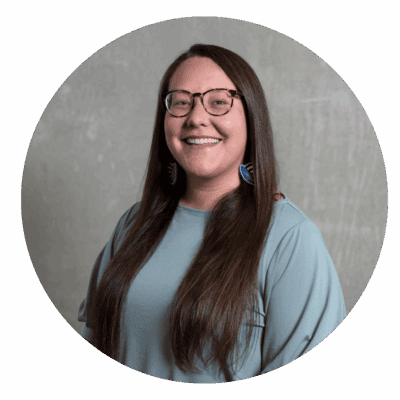Recap | 2025 Misko Aki Knowledge Exchange
Making Liveable Worlds
The second iteration of the Misko Aki Knowledge Exchange (MAKE) – previously RPS – welcomed 29 students and 7 faculty members. Students took part in 10 core sessions – 4 virtual sessions and 6 in-person sessions in Tkaronto (Toronto). Preview the program, including the overview and schedule.
This year’s theme was inspired by “Making Liveable Worlds: Afro-Puerto Rican Women Building Environmental Justice” by Hilda Llorens (2019), as well as the ongoing efforts of Indigenous communities and colleagues dedicated to creating liveable spaces. This program explored the many ways academics, artists, and activists make liveable worlds informed by Indigenous and decolonial perspectives and research.
Looking ahead, MAKE alumni have access to several opportunities including Radical Reverberations, a Yellowhead School program that offers institutional support to MAKE alumni in organizing an educational initiative that draws upon, expands, and deepens their MAKE training.

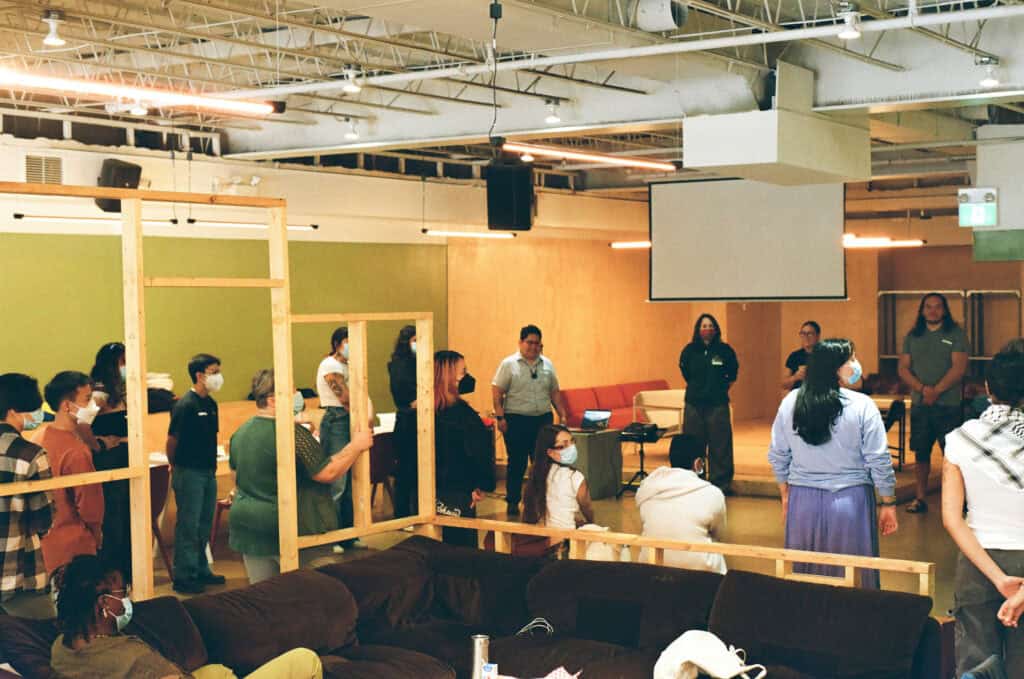
Program Highlights
There were many program highlights and examples of where we witnessed making liveable worlds in practice through arts, preparedness planning, and accessibility – including beyond the immediate MAKE cohort.
01. Art Gallery Visit for Creative & Disruptive Reflections
We visited In the Interstices of Our Palms at the Art Museum, University of Toronto, which explores ways to build, hold, and share community in times of disruption. Artists such as Tanya Lukin Linklater, Rihab Essayh, and Anouk Verviers were featured. Given the close connections to MAKE themes, students critically engaged in discussion and journal reflections during the visit.
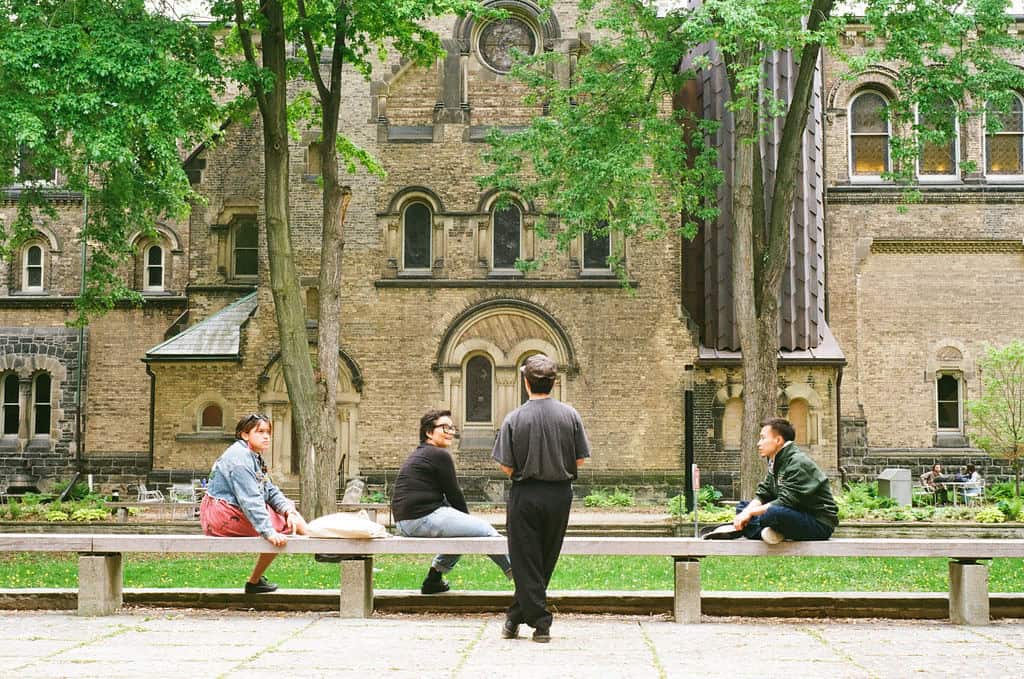
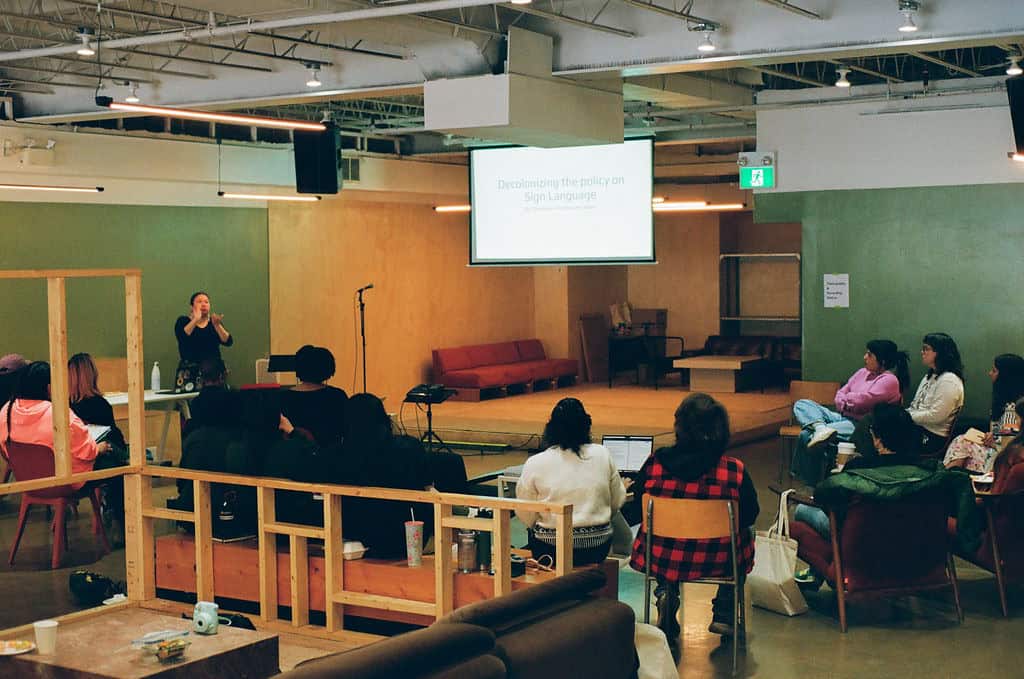
02. Open Studio Space: Decolonizing Sign Language Policy
Open studio sessions served as space for the students to connect and work on projects of interest. Dominique Ireland, a MAKE student, led a participatory workshop, Decolonizing Sign Language Policy. Students were inspired to center Indigenous sign languages and Indigenous deaf communities in policy-making and practice.
03. MAKE 2025: A Playlist for Making Liveable Worlds
In addition to sessions, there were some created materials. A shared music playlist was curated by the cohort. Students felt enthusiastic about being able to listen to the tracks and feel more connected with their cohort.
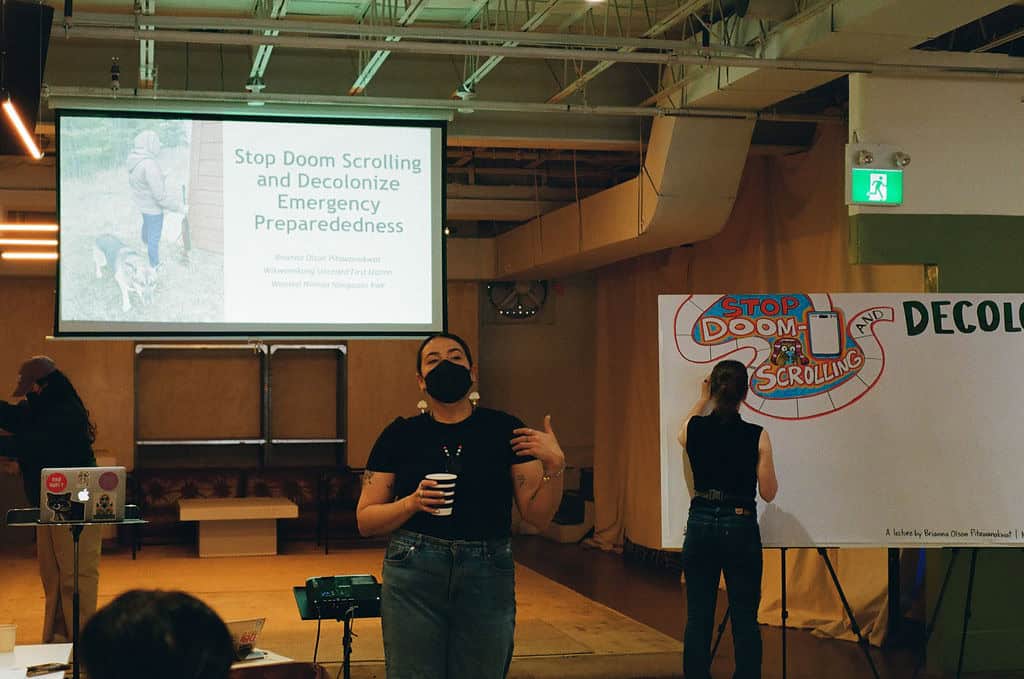
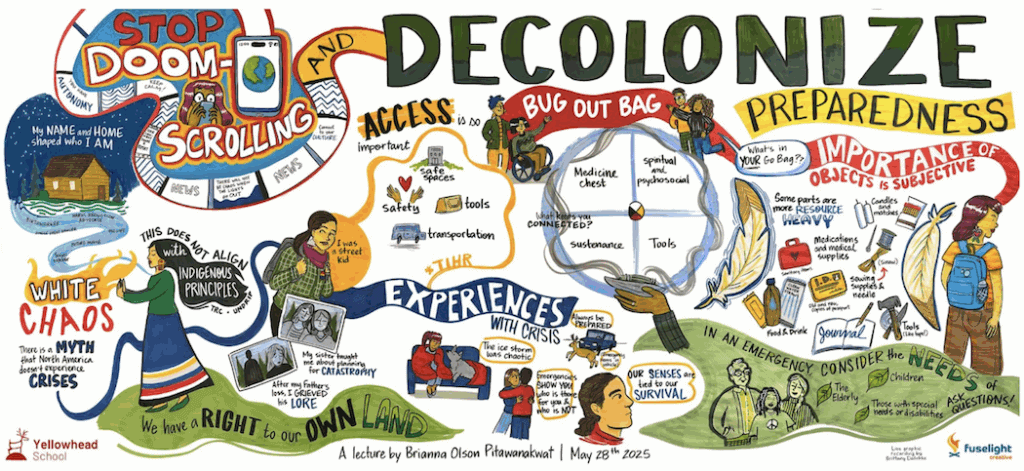
04. Tools for Decolonizing Preparedness: Bug Out Bags
A graphic note recording was captured to showcase the discussions during Stop Doomscrolling and Decolonize Preparedness by Brianna Olson Pitawanakwat. Drawing from her lived experiences, Brianna spoke about what she considers necessary in her daily bug out bag, grouping them thematically as tools, sustenance, medicine chest, and spiritual and psychological items. Participants had the opportunity to curate their future bug out bags by brainstorming what was important to them.
05. Painting & Tracing Our Genealogies of Resistance
Students were invited to create take-home art pieces during Tracing Our Genealogies of Resistance: Building Embodied Practices of Joint Struggle by Quill Christie-Peters. Drawing from her personal practice, Quill demo’d colour mixing and painting techniques. Students’ paintings were inspired by an object or photo they brought to remember an important ancestor in their life.
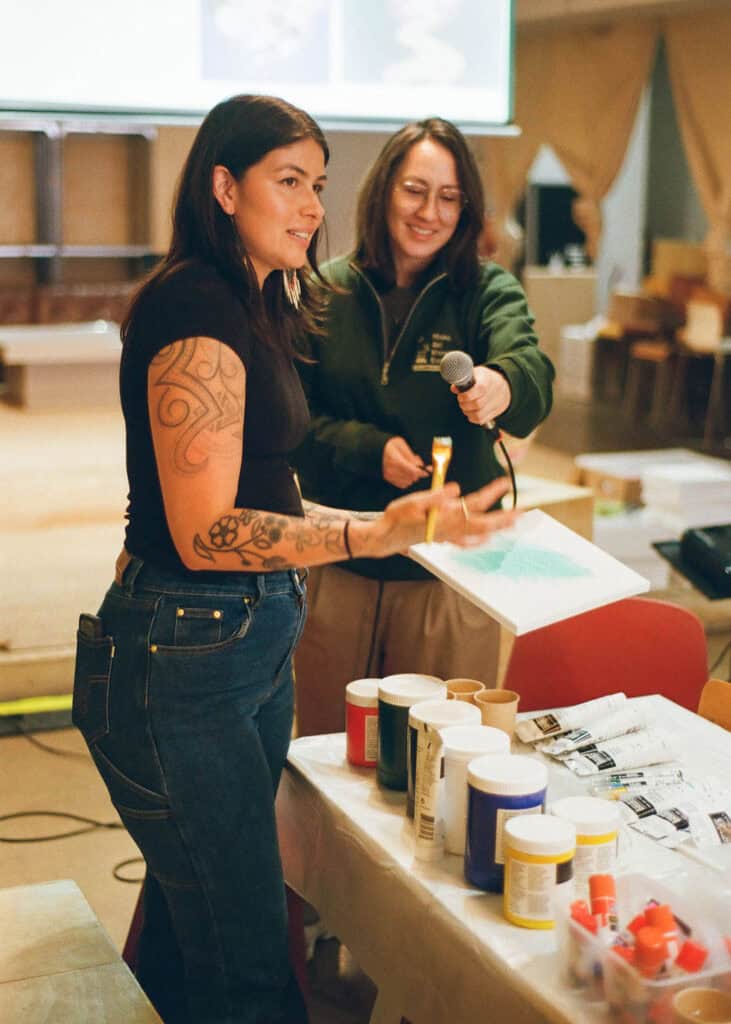
Participant Reflections
There were several touch points for reflection and feedback throughout the program. A common thread was that many participants joined MAKE during particularly stressful periods in their work and personal lives. When they joined MAKE, many felt uncertain about meeting new people, entering a new educational space, and not knowing what to expect. Through the program, they felt MAKE was a space to connect with like-minded peers on joint struggles and possibilities. Overall, there were sentiments of gratitude, inspiration, and empowerment for being a part of MAKE.
I know that I feel like I'm different, I know that I'm thinking differently, that I feel different after spending a week with people who care. Not having a curated message about how to change or what to change into. Learn how to share leadership, watch shared leadership and watch folks doing their best. Seeing people try and do it even though there's no roadmap for how to change the world. But people here are trying and giving themselves wholly to that purpose. Learned that people exist like this in the world and there are more people like that.
Knowledge is meant to be shared and learned from. I want to teach my children as much as possible and I am so grateful that I applied to join MAKE and be able to do so. I am in literal tears because I have wanted this for so long as I was lost for most of my life. Community and belonging is what I needed and I am happy that this group and you all are a part of this.
2025 RPS Faculty Members

Brianna Olson Pitawanakwat
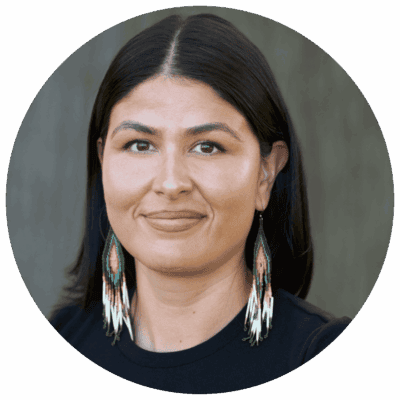
Quill Christie-Peters
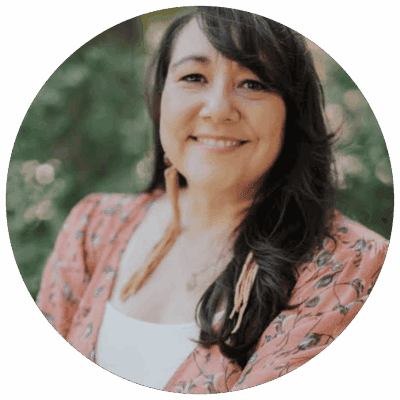
Dr. Shalene Jobin
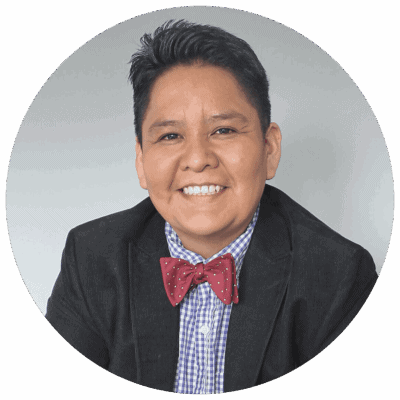
Nazbah Tom
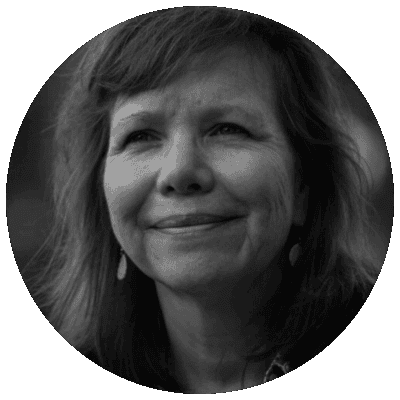
Katsi’tsakwas Ellen Gabriel
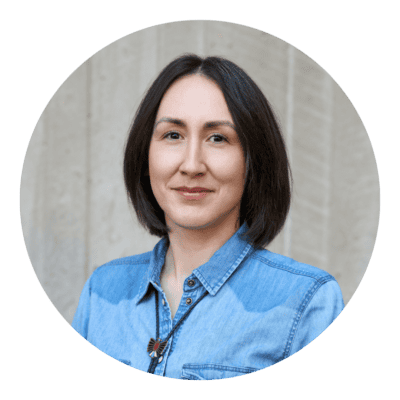
Megan Scribe
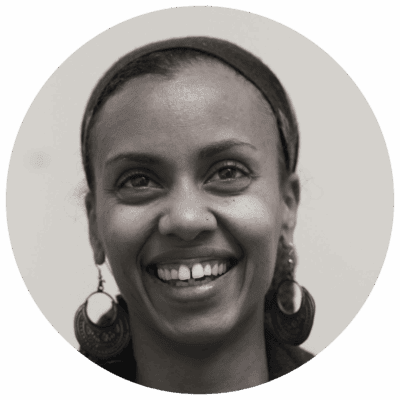
Dr. Nisrin Elamin

Susan Blight
Meet Our 2025 Selection Committee
Alumni from our 2024 program helped us select our 2025 cohort.

Lindsay Debassige
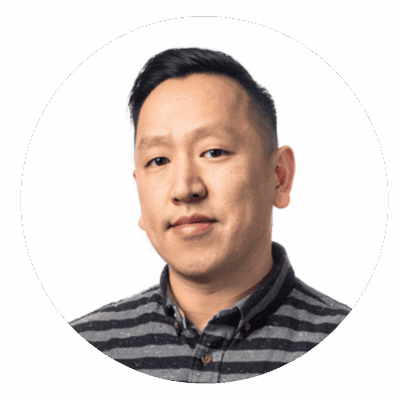
Joe Banh
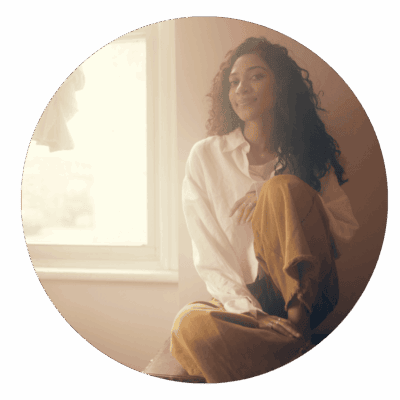
Ja'miil Millar
